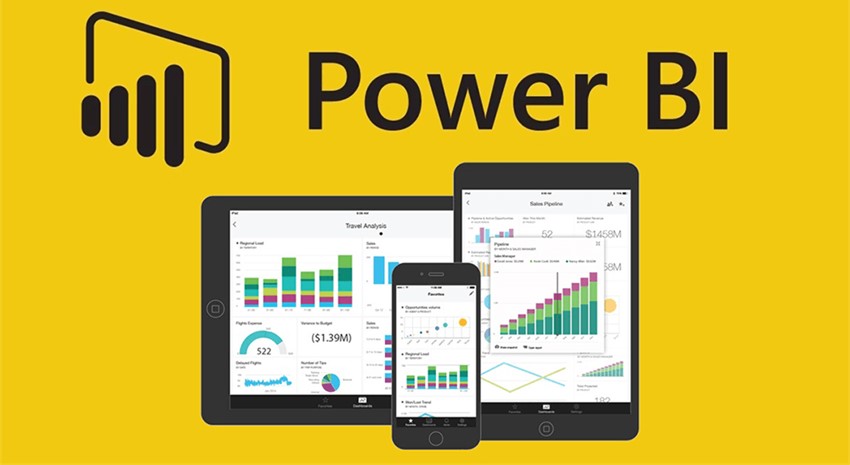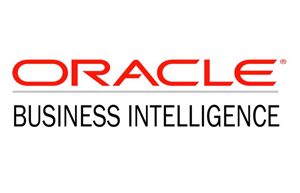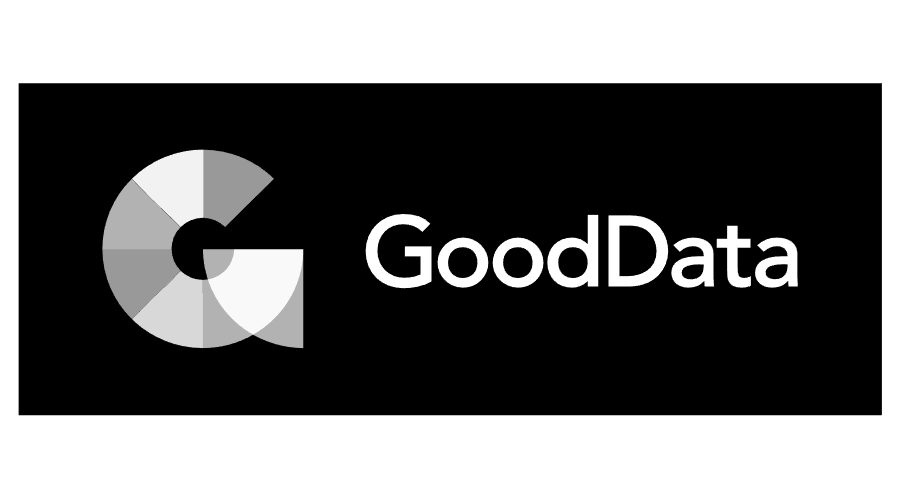The best business intelligence platform makes it simple and easy to gain insights from data and communicate with stakeholders. This is especially true now that modern businesses can collect data on virtually every aspect of their operations, from sales and marketing to workflows and productivity, hiring and HR, and overall performance and profitability.
Many of these data points, however, exist in isolation and require the best tools for business intelligence to connect the dots. This is what business intelligence entails: the ability to look at a specific detail of business operations while also tying key information from each angle into an overall whole.
This allows for real insights and predictions for improving business performance, not least via Key Performance Indicators (KPIs). Several software packages include their analytics, which is frequently exported into a business intelligence platform.
Even more importantly, the best business intelligence software is driven by visualizations that you can share with stakeholders to communicate sometimes complex statistics as simple charts and diagrams.
In this article, I’ll be showing you the best tools for business intelligence currently available for business.
Why Use Business Intelligence Tools?
The best tools for business intelligence provide numerous significant benefits; we will focus on the most important ones here:
#1. They compile all relevant data
Whether you work in a small or large enterprise, you most likely collect data from a variety of portals, ERPs, CRMs, flat files, databases, APIs, and other sources. To manage all of these sources and gain a better understanding of the collected data, you must develop a high level of data intelligence.
As a result, using modern data connectors will assist you in centralizing disparate sources and providing you with a unified view of all your business processes. Identifying issues, and trends, performing cross-analysis, and taking action are all linked and based solely on data in this manner.
#2. Their true self-service analytics methods enable data access
When every employee in the company is well equipped with modern business intelligence software that allows them to explore data on their own, the need to request reports from the IT department is greatly reduced.
This self-service business intelligence approach provides organizations with a competitive advantage because each employee will be well equipped with the appropriate amount of data analytics skills, ultimately saving the company’s time and resources while relieving the IT department, allowing them to focus on other critical tasks.
#3. They eliminate manual tasks
While traditional business management methods encourage the use of spreadsheets and static presentations, modern software eliminates endless amounts of rows and columns and allows for process automation.
Do you require a report? The tool automatically updates your KPI dashboard with real-time data. Furthermore, you can automate the reporting process with predefined time intervals and simply examine the results.
Do you require a presentation? Simply drag and drop your values to see how simple it is to create a powerful interactive dashboard that allows you to directly interact with your data on a single screen. We’re saying goodbye to endless PowerPoint presentations and hello to a much more intuitive approach to data analysis.
#4. Its lower business costs
The best tools for business intelligence enable faster planning, analysis, and reporting processes across the board, from sales planning and customer behavior analysis to real-time process monitoring and offer optimization.
In fact, according to a business intelligence survey, more than half of business intelligence users reported that these are the most significant benefits that helped them reduce costs and increase revenues.
You can achieve far better business results and make profitable adjustments if you can work quickly and accurately. The advantages of the best tools for business intelligence apply to both small and large businesses. If you need to control your data and understand what’s going on in your business, business intelligence is the way to go.
See Also: 10 Almost Free Marketing Tools for Beginners in 2024
What to Look Out For in The Best Tools For Business Intelligence
There are features you should look out for when getting the best tools for business intelligence, they include
#1. Visual functionality & Presentation
Is the tool easy to use and does it support a wide range of user types when creating data visualizations? Is the data visualization software customizable and flexible enough to support your objectives as well as the needs of the various functional groups in your organization?
Your business intelligence reporting tool is the public face of your company. It is what your users will use to make business decisions.
While visuals may not appear to be all that important when selecting a business intelligence tool, if your dashboards are difficult to create or understand, or feature low-quality visuals, it will be infinitely more difficult to get people to use the tool in the first place.
#2. Mobility
Using a mobile business intelligence tool is a simple and effective way to keep everyone connected. Mobility features are critical for any company with off-site workers, board members, or partners who require access to company data to be effective and informed.
Determine what you require from your mobile business intelligence app. Do your users need to view dashboards and reports on the fly, or do they also need to create or edit them?
Mobility has advanced significantly in the business intelligence space, with an increasing number of vendors offering mobile solutions. Just make certain that they provide the features required for the success of your operation.
#3. Pricing
There are three major cost factors to consider: subscriptions, growth, and hidden fees. Get complete pricing information for your solution now and as your needs change and grow. Is the vendor requiring quarterly or yearly subscriptions in addition to any upfront fees? This may or may not be advertised, but it may come into play later.
Your business intelligence requirements will change as your company grows and expands. Will the vendor’s flexible pricing model allow you to scale your solution?
Are there any additional fees not included in the pricing model that is required for full implementation or scaling up of your business intelligence reporting tool (for example, hardware, server use, development/testing environment, etc.)? To avoid future surprises, figure out how much you will spend on your business intelligence solution upfront.
Related: 10 Best Google Project Management Free Tools In 2024
How Will Business Intelligence Secure Your Business
The security and availability of data are critical requirements for any IT system. A BI solution will provide the same high levels of performance, dependability, and security as the other systems in your organization. To keep data safe, reputable BI solutions make use of existing security infrastructures.
The Power BI service, for example, is on Azure, Microsoft’s cloud computing infrastructure and platform. Power BI manages user identity and permissions using Azure Active Directory (AAD), and it supports Row-Level Security to automatically restrict data access for given users based on role.
Overview of The Best Tools For Business Intelligence
We have chosen the top 10 best tools for business intelligence that are leaders in the business intelligence community, often mentioned in industry articles, and obtained a favorable level of user reviews. The order of the tools is random and doesn’t represent a grading or ranking system in any form
- #1. Microsoft Power BI.
- #2. Dundas BI.
- #3. Domo.
- #4. Sisense.
- #5. SAS BI.
- #6. Oracle Business Intelligence.
- #7. MicroStrategy
- #8. Tableau
- #9. Qlik.
- #10. GoodData.
Best Tools For Business Intelligence in 2024
Here are some of the best tools for business intelligence you most likely should try out.
#1. Microsoft Power BI

Microsoft, the software behemoth, also has a presence in the business intelligence tool space, with Microsoft Power BI. They even have a Microsoft Business Applications Summit, which includes Power BI and, predictably, other Microsoft business applications.
Unlike some of their competitors, who only offer a web-based portal, Power BI also provides downloadable software, allowing you to run your analytics in the cloud or through a reporting server.
The software comes with a sixty-day trial period and promises to “Connect hundreds of data sources,” including Microsoft applications and other sources like Facebook, Sybase, and Oracle. Which can then prep data for subsequent data analysis on the fly, because of this, results are then created in minutes.
Pricing for a single user starts at the Power BI Desktop tier, which is fully functional and free. Power BI Pro is the next tier up. It includes a 60-day trial and supports user collaboration and real-time data analysis. Microsoft Power BI is one of the best tools for business intelligence out there.
Visit Sites-Microsoft Power BI
#2. Dundas BI

The next best tool for business intelligence on the list is Dundas BI. Through interactive dashboards, reports, and visual analytics, this business intelligence platform aims to simplify and adapt the entire analytics process. Dundas, the software, was founded in 1992 as a solution for data visualizations. In 2015, the tool evolved into Dundas BI, an end-to-end analytics platform that enables every level of user to visualize and analyze data with features such as report generation, ad hoc queries, and data discovery, among others.
This is one of the best tools for business intelligence out there.
Key Features:
- Immersive Mobile Experience: Using HTML5, this feature allows you to share, view, and create dashboards from your mobile device. The mobile version is identical to the desktop version and does not require any app downloads. Customizable data views: The tool allows you to create dashboards using drag and drop. We can customize dashboards with a responsive design with a variety of charts, styles, and themes.
- Seamless integration: Dundas BI is a fully programmable platform that both regular end-users can customize and advanced users using CSS styling and full scripting. This means that you can use an API to integrate the entire system into your application.
- Tailored Analytics: Dundas BI provides real-time data, allowing business users to quickly view, create, interact with, and monitor their data on any device. Furthermore, the tool supports cross-analysis, allowing users to explore their data and discover hidden opportunities.
- Interactivity: When it comes to visualizing your data, the Dundas BI platform provides several highly interactive options, including smart recommendations, chart animated transitions, and data brushing, among others. The ultimate goal is to keep users engaged while also assisting them in understanding the data more quickly.
Visit Site- Dundas BI
#3. Domo

Domo is a business intelligence software platform that includes multiple systems, beginning with connecting data and ending with extending data with pre-built and custom apps from the Domo Appstore.
Basically, Domo can be used in conjunction with R or Python scripts to prepare data for predictive modeling in data lakes, warehouses, and ETL tools.
You can connect data across your enterprise, use machine learning and artificial intelligence capabilities, and allow users to explore the data on their own, just like with other tools. The Domo is one of the best tools for business intelligence out there.
Key Features:
- Numerous pre-built cloud connectors: Data integration works similarly to other tools; you can connect to more than 1000 pre-built cloud connectors, on-premise with Domo Workbench, file upload such as Excel or Google Docs, proprietary systems, and federated connectors that will allow you to query the data regardless of its location.
- Magic ETL feature: Data transformation tools will allow you to prepare your data with a drag-and-drop Magic ETL, as Domo refers to it, without having to learn SQL.
- Domo Appstore: Their open cloud platform is an ecosystem of pre-built apps, connector APIs, and dashboards, with the option to create your own and share it on the Domo Appstore.
Visit Site-Domo
#4. Sisense

SiSense is one of the best tools for business intelligence that aims to simplify data analysis by incorporating IoT, machine learning, and AI into its platform. They claim that it is so simple that you can go from “data to dashboard in just 90 minutes.”
While we can debate the validity of that claim, their client list, which includes GE, Philips, Fujitsu, NBC, and Airbus, indicates that this is a top-tier product.
The ability to embed white label analytics with customizations, mashup live or cached data, analyze data across your entire landscape, or focus on specific areas such as objects, data, or systems are among the main features. Sisense is a business intelligence program that can run in the cloud or on-premises.
However, there is no flat-rate pricing for either model. Their custom pricing is usually based on an annual subscription model, but it requires a price quote, which is not available on their website.
Visit Sites sisense
#5. SAS BI
SAS’s approach to BI is its Visual Analytics tool, which is available through its cloud and microservices-based SAS Viya platform. It aims to highlight key relationships in data automatically.
The most recent version includes automated suggestions for relevant factors as well as insights expressed through visualizations and natural language.
Other features include sentiment analysis for data extraction from social media and other texts, automatic chart generation, mapping, and self-service data preparation.
Deployment can take place on-premises, in public or private clouds, or as a service on the Cloud Foundry platform. This is one of the best tools for business intelligence out there.
#6. Oracle Business intelligence

Oracle BI is a portfolio of technology and applications with a focus on providing end-to-end solutions to help businesses optimize their performance and empower them to make faster and more informed mobile-enabled decision-making.
They provide a broad range of data management features such as machine learning, artificial intelligence, and an integrated array of querying, reporting, and mobile analytics, among others.
Oracle’s mission has been to provide businesses with tools to efficiently manage their data in a comprehensive and agile manner since its inception in 1977. Oracle business intelligence is one of the best tools for business intelligence.
Key Features:
- Oracle dashboards: The tool provides personalized dashboards that provide interactive access to information while its personalization is usually based on an individual’s roles and identity. In this manner, users interact with live reports, charts, graphics, and pivot tables in pure web architecture.
- Personalized alarms: Oracle BI provides a personalized alarming system that monitors business activity and can reach users via dashboards, emails, or even mobile devices. Alerts can initiate a collaborative workflow by passing contextual information to other alerts or users.
- Oracle BI Publisher: This feature allows you to generate scalable reporting to securely and correctly deliver complex information to stakeholders. Reports created in Microsoft Word or Adobe Acrobat are then delivered via e-mail, printer, fax, WebDAV, or portal publishing.
- Real-time decision-making server: This feature, which combines rules and predictive analytics, enables real-time intelligence to be implemented in any business process. In real-time, the tool makes recommendations and reveals insights.
Visit Site- oracle BI
#7. MicroStrategy

MicroStrategy is one of the best tools for business intelligence available. With cloud, on-premises, and hybrid deployment options, it targets the enterprise BI market across a wide range of industries. It has a drag-and-drop interface that allows users to create personalized data visualizations and real-time dashboards.
MicroStrategy promotes federated analytics, which enables customers to leverage existing investments in data sources like Tableau, Qlik, and Power BI, and blend the data to create reports and insights.
It also includes an enterprise semantics graph, which indexes data assets and adds location intelligence and real-time telemetry to data silos. MicroStrategy provides a 30-day free full platform trial.
Visit Site – microstrategy BI
See also: 10 Best Free Wireframe Tools in 2024 | Do a Sketch in realtime
#8. Tableau

Tableau Software covers all bases: its software can run on-premises, in the public cloud, or be fully hosted by Tableau. It provides customized versions for over a dozen industries, including banking, healthcare, and manufacturing, as well as support for financial, HR, IT, marketing, and sales departments, which is almost standard these days.
Tableau’s capabilities include survey and time series data mapping and analysis. Its most recent trick is to use natural language processing artificial intelligence techniques to allow users to describe what they want to see rather than clicking and dragging to create formulaic queries. It is one of the best tools for business intelligence available.
Visit Site – tableau
#9. Qlik

Qlik is one of the best tools for business intelligence available. Its goal is to give anyone in the enterprise access to all of its data, subject to corporate data governance policies, of course.
Most database engines would struggle with all of that data, but Qlik claims its Associative Engine can associate every piece of data with every other piece, making it easier to search for connections.
Because of the Qlik cognitive engine, the Associative Engine now has AI and machine learning capabilities that provide context-aware insight suggestions. Qlik Sense, the self-service tool for gaining access to that analytical capability, is available in both cloud and on-premises versions.
Visit Site – Qlik
#10. GoodData

GoodData is one of the best tools for business intelligence available. It is a business analytics software that enables data ingestion, storage, analytic queries, visualizations, and application integration. According to their website, you can embed their analytics into your website, desktop, or mobile application, or create dashboards and reports for your daily activities without needing a Ph.D.
Visit Site – gooddata
Frequently Asked Questions
While you may use several line-of-business systems to manage your company, BI is about combining data from these sources in a structured manner to visually present information in a meaningful way. This is not possible with standard standalone reporting tools. A truly useful BI solution should be easy to integrate with your day-to-day business applications.
Accessing, modeling, visualizing, and reporting the information required by businesses was previously out of reach for all but the largest corporations. Today, Cloud technologies have reduced the costs of implementing BI solutions, making them much more accessible to small and medium-sized businesses. Power BI, Microsoft’s powerful self-service BI tool, in particular, enables any business to explore enterprise-grade analytics and decision support for no upfront cost.
The best tools for business intelligence make it simple and easy to gain insights from data and communicate with stakeholders.
Business tools should support organizations through a structured process. From an implementation perspective, Business Intelligence is a set of processes, architectures, and technologies used to convert raw data into meaningful information to drive profitable business actions.
SQL, or structured query language, is essential in business intelligence because it is the only way to communicate with relational databases? It’s so important that how business intelligence tools use SQL is one of the distinguishing features that differentiate them.
Why should I also invest in other software for Business Intelligence?
Conclusion
Big data is all around us and getting bigger by the year. With the numerous features that the best tools for business intelligence have to offer, you stand to reap significant benefits – your data management will become more cohesive, stable, agile, and predictable.
We aimed to assist you in evaluating the best tools on the market, and we hope that we have provided an in-depth review of each product that will inspire you to begin exploring business intelligence tools and finding a perfect fit for your company or department.
See Also: 20 best free video-making tools for beginners in 2024
References
- selecthub.com -Business intelligence tools.
- datapine.com -Best business intelligence tools.
- cio.com -Top business intelligence tools.
- technologyadvice.com -Business intelligence tools.
- Image link
Recommendations
DISCLOSURE: This post may contain affiliate links, meaning when you click the links and make a purchase, we receive a commission.






1 comment
Comments are closed.